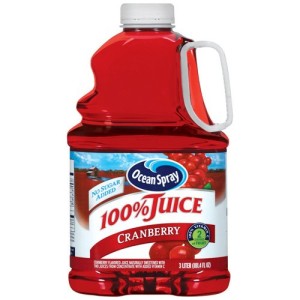Capitalists suck donkey balls
July 14th, 2014
…but capitalism doesn’t have to.
The poor popular reputation of free markets may be connected to the prevalence of deceptive advertising, especially for consumer goods and services.
Spend just an hour watching TV after midnight, and you’ll be bombarded with ads for penny auctions, infant life insurance, sports betting (you’ll win thousands), anti-impotence drugs (or is it penis-lengthening? They’re never clear.), etc.
As Michael Caldara said in the first link above, “we don’t hear calls to regulate infomercials, get-rich-quick seminars, and fad diets”, but – perhaps we should?
I’d prefer vigorous enforcement against common-law fraud, but (in my humble opinion; don’t sue me,) these ads intentionally mislead the ignorant and incompetent. That’s why they air when most successful people are asleep.
To many people this gives the impression that capitalism is little more than legalized theft and deceit. A crackdown on these obvious (to me, anyway) cases of fraudulent advertising might go a long way toward improving the reputation of both government and business. Markets only work to society’s benefit – not to enrich those with the least scruples – when the basic rules of honest dealing are enforced.
If that’s too hard, another path would be an organization of ethical businesses that observe a code of honesty (complete with a membership seal).

July 14th, 2014 at 1:53 pm
But are they really fraudulent? Is the infant life insurance ad lying about what it provides? The male enhancement ad is already being careful to avoid any claims that would get it in trouble with the FDA. We already have laws against fraud, and the ads are carefully abiding by them.
If you think the laws are too lax, I’d be interested to know how you would change them. What do the penny stock, insurance, or enhancement ads say that they should not be allowed to say? And how would you express that in law?
July 14th, 2014 at 4:50 pm
The legal standard I’d like to see enforced is “intentionally misleading” in order to fleece consumers.
* The penny auction sites (Quibids, etc., not penny stocks) imply that you’ll buy consumer goods for < 20% of their retail value (a new car for $2000, an iPad for $30, etc.). This is simply false. * The infant insurance ads imply that buying the life insurance will somehow "protect" the infant. But of course it only pays out once the infant is dead. * The enhancement ads imply that taking the drug will somehow improve your sex life or performance. All these claims are factually false, and I think ought to fall under the existing law about fraud.
July 14th, 2014 at 5:51 pm
The insurance is a Whole Life policy. According to the web site “As an adult, your child will have the option to turn in the policy and receive the available cash value.” I’ve never cared for Whole Life policies (let alone annuities) but many reasonable people think they’re a good idea.
The male enhancement site says “Enzyte 24/7 contains powerful male enhancement ingredients like Epimedium (Horny goat weed) and Muira puama (Potency wood), powerful antioxidants to guard against nutrient deficiencies that may impact [penis] volume”. It’s interesting that they don’t claim a direct effect on erections. But hey, there might be a powerful placebo effect.
Penny auctions are too boring for me to go read their web site. 🙂
But you’re citing what the ads “imply” and asking to make implication a crime. I’m just nervous about what that law would look like and how it would be applied.
July 14th, 2014 at 5:59 pm
Without doubt, it’s a balance. A line needs to be drawn. I think it has been drawn in the wrong place.
Look at the cranberry juice example. Should that really be legal?
Think about the indirect effects on perception of the capitalist system, and the costs of _that_.
July 14th, 2014 at 9:57 pm
OK, so the line has been drawn wrong. But I’d want to know more about how you want to redraw it before I’m comfortable with it.
The back of the juice bottle has the ingredients listed, showing the different juices. Saying “100% Cranberry Juice” would be fraudulent (and you noted the distinction), but I have a hard time getting upset when they say that it’s 100% juice (which is true) and then show the dominant flavor while listing all the ingredients on the back. I don’t want to get to the point where juice needs to have disclaimers like the ones in drug commercials.
As for the perception of the capitalist system: the problems go far, far beyond this issue. Bankers, landlords, layoffs, income inequality, polluters, lobbyists, warmongers, slave traders, heartless rich people, globalization – all of these are part of the negative perception of capitalism. We could fix juice labels and late-night TV commercials, but there would be no discernible improvement in capitalism’s reputation.